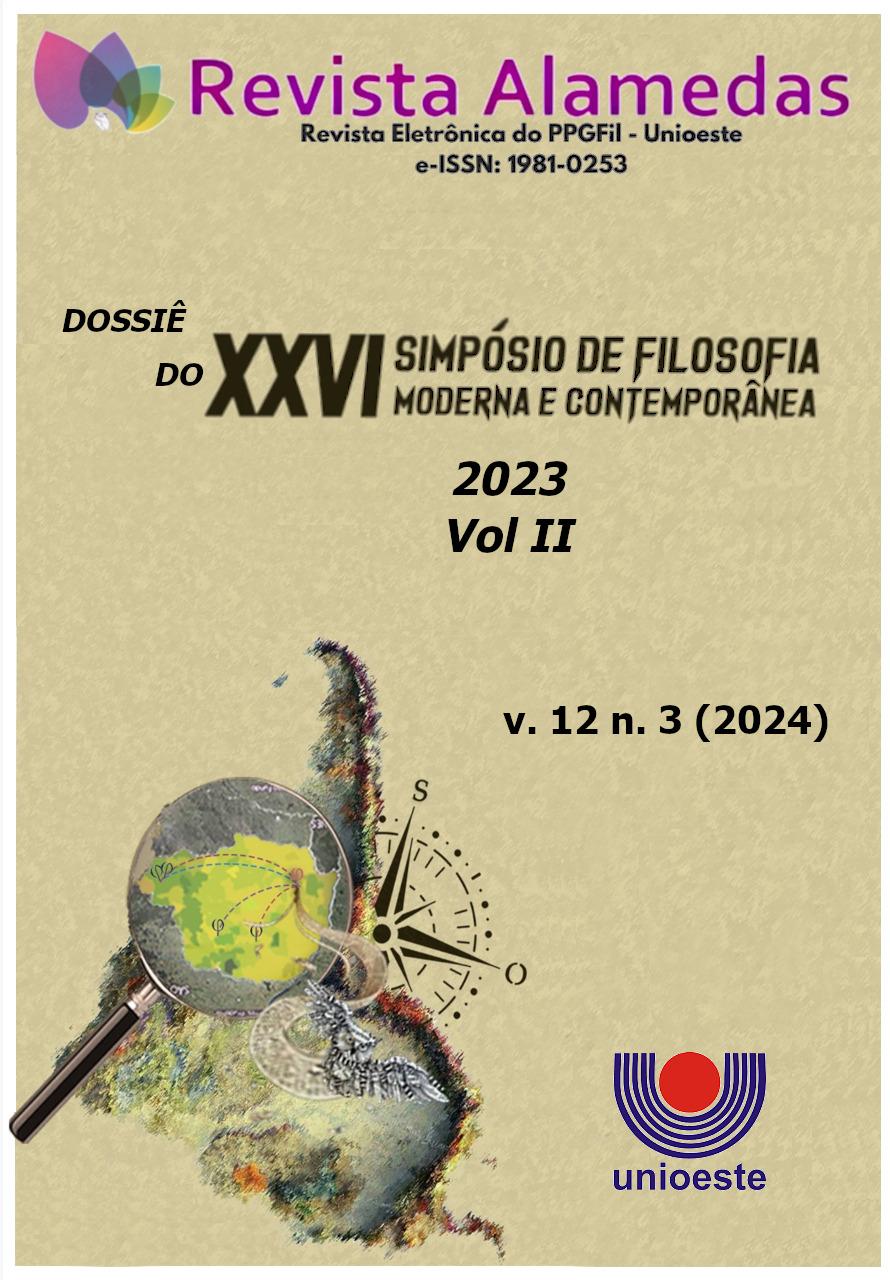Aspectos do pensamento de Nietzsche sobre a vida humana
DOI:
https://doi.org/10.48075/ra.v12i3.33082Keywords:
Nietzsche, Inocência, Culpa, Moral cristãAbstract
This research explores Nietzsche conception of human innocence. Bringing together the actions of man and the actions of nature, the philosopher expresses a relevant thought about the absence of choice in impulse manifestations. Given the interpretations that attribute moral and religious responsibility to man for his actions, the German philosopher's criticism stands out. He thinks that man does not have free will, but that the vital impulses that constitute his organism are exercised out of the need for growth and expansion. This vital organism, driven by impulses in an uninterrupted struggle for expansion, is not commanded by a rational soul. The philosopher explains that there is no agent behind human actions, but rather the manifestations of impulses acting incessantly. Considering human life from this interpretation, man could not be rewarded or punished for his actions. Antagonistic to the moral and religious precepts that attribute to man the weight of free will, the philosopher envisions the possibility of seeing the emergence of a type of innocent man: a man detached from metaphysical conceptions and ultra-earthly hopes. Freed from the belief in the continuation of life in a better world, this man would not feel like a sinner for attitudes considered offensive in the eyes of divinity. Conceptions such as eternal life or eternal suffering would no longer make sense. It would be a legitimate liberation of man from all the burden attributed to the repressive institutes of guilt and sin – notions considered, by the philosopher, to be derived from the belief in God as creator and judge of all things. This innocent man is pointed out by the German philosopher as the man of the future, as the one who will rescue the innocence of becoming. In order to examine Nietzsche perspective regarding man's innocence and investigate whether this notion constitutes an affirmative stance towards life, we will analyze some excerpts from Human, All Too Human I and II (1878-80), Aurora (1881), The Gay Science (1882) and the Genealogy of Morals (1887).
Downloads
Published
How to Cite
Issue
Section
License
Copyright (c) 2024 Alamedas

This work is licensed under a Creative Commons Attribution-NonCommercial-ShareAlike 4.0 International License.
Aviso de Direito Autoral Creative Commons
Política para Periódicos de Acesso Livre
Autores que publicam nesta revista concordam com os seguintes termos:
1. Autores mantém os direitos autorais e concedem à revista o direito de primeira publicação, com o trabalho simultaneamente licenciado sob a Licença Creative Commons Attribution que permite o compartilhamento do trabalho com reconhecimento da autoria e publicação inicial nesta revista.2. Autores têm autorização para assumir contratos adicionais separadamente, para distribuição não-exclusiva da versão do trabalho publicada nesta revista (ex.: publicar em repositório institucional ou como capítulo de livro), com reconhecimento de autoria e publicação inicial nesta revista.
3. Autores têm permissão e são estimulados a publicar e distribuir seu trabalho online (ex.: em repositórios institucionais ou na sua página pessoal) a qualquer ponto antes ou durante o processo editorial, já que isso pode gerar alterações produtivas, bem como aumentar o impacto e a citação do trabalho publicado (Veja O Efeito do Acesso Livre).
Licença Creative Commons
Esta obra está licenciada com uma Licença Creative Commons Atribuição-NãoComercial-CompartilhaIgual 4.0 Internacional, o que permite compartilhar, copiar, distribuir, exibir, reproduzir, a totalidade ou partes desde que não tenha objetivo comercial e sejam citados os autores e a fonte.


